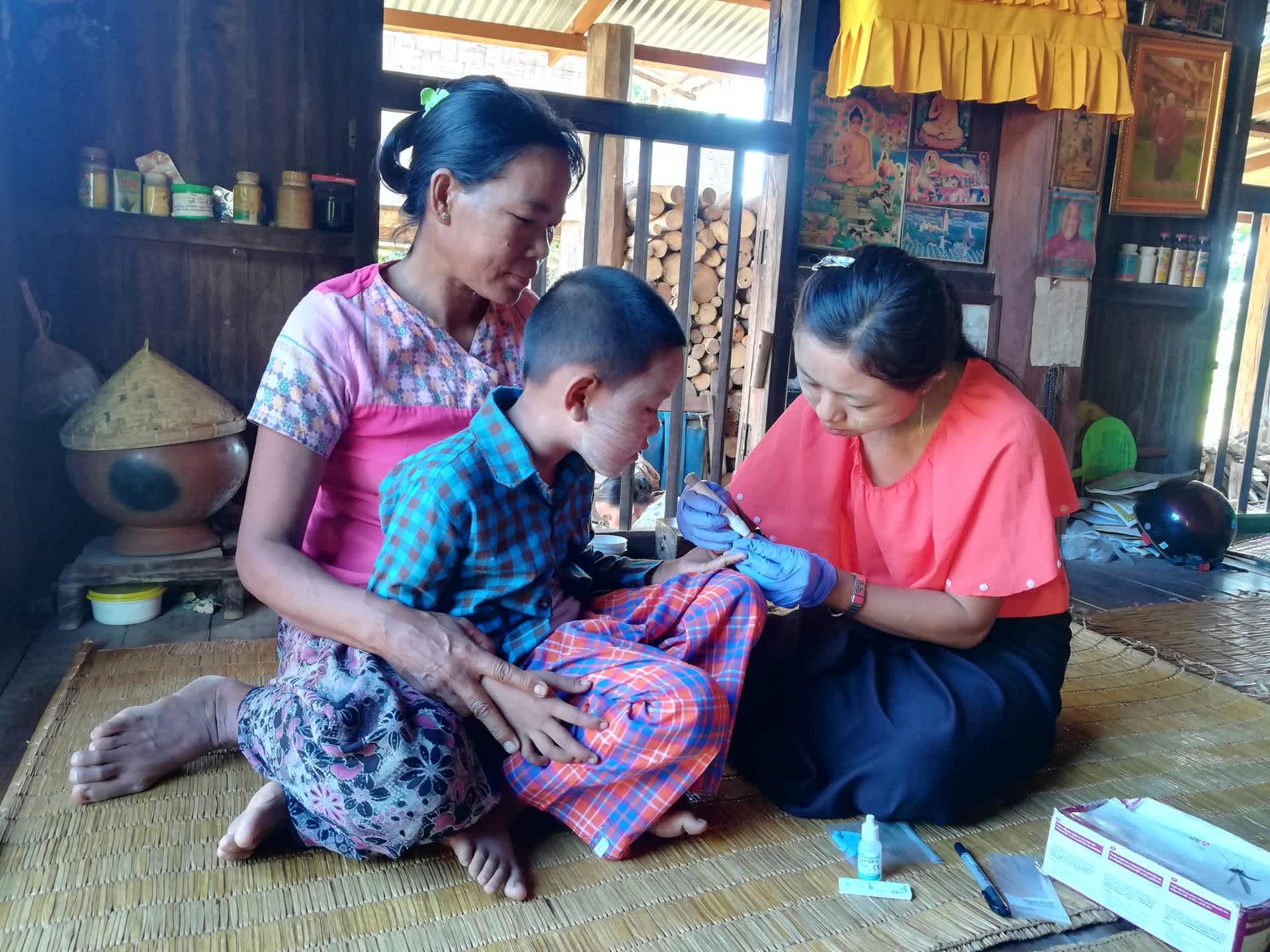Myanmar
Malaria Consortium
Expansion of Rural Access to Community-Led Services to Address Malaria and Childhood Illnesses

Overview
Myanmar is currently on track to be malaria-free by 2030. Claiming only 200 lives nationwide in 2017, the country has used local approaches to tackle the disease and become an example to the world in the fight against malaria. However, despite strong progress towards elimination, data collected in 2015 across the Sagaing region indicated malaria was still a serious health burden, disproportionately affecting pregnant women, migrant-mobile-populations and children under five. The data showed this was a result of poor access to health facilities, a lack of understanding of malaria diagnosis, treatment and prevention, and low community awareness of the danger signs of other diseases.
This project aimed to strengthen the primary health care system in Sagaing. Building on the success of previous initiatives that trained basic health staff and volunteers to address the burden of malaria in the region, this project trained and supported malaria volunteers to provide integrated community case management (iCCM) for malaria, diarrhoea, and pneumonia, in under-fives, as well as for the provision of tools and medicines to diagnose and treat these illnesses.
Volunteers received training in Behaviour Change Communication and community dialogues to disseminate information critical to the prevention of health-related issues. Additional training provided to health staff across key high-burden districts also strengthened local supply chain management to prevent stock outs of key commodities. The project also aimed to strengthen the surveillance system in the region and improve the collection and use of data. An app was rolled out for General Practitioners (GPs) in coordination with the National Malaria Control Programme to track, report and follow-up malaria cases and ensure communities got better malaria care.

Key successes and learnings
Strengthened quality assurance systems contributed to health system strengthening
Through the development of systematic quality supervision mechanisms and toolkits, basic health staff were better able to support and oversee the work of volunteers, building links with the national health system. The National Malaria Control Programme aims to replicate and refine this model to supervise its 10,000 malaria volunteers nationally.
Ensured access to quality services among under five children in poor and remote communities
Previously, community members often relied on informal service providers. Now they visit malaria volunteers for treatment of not only malaria, but also diarrhoea in under-fives, as well as pneumonia in areas where volunteers can prescribe antibiotics. iCCM is now widely accepted and gaps in the provision of services are reduced.
Community dialogues improved the way behavioural change communications were delivered
Previously, health education was inconsistent, usually one-way and had limited impact. The participatory nature of community dialogues has increased community engagement and trust and helped to address community misperceptions about health-seeking behaviours.
Key statistics
13,155 children under 5 years of age were assessed by malaria volunteers, 86% of the target.
Retention of malaria volunteers remained high, with 80% remaining active over a 24-month period (194/240)
For cases presenting fever, rapid diagnostic tests were carried out in 91% cases
Resources
Read Expanding rural communities' access to health services in Myanmar on malariaconsortium.org
Visit malariaconsortium.orgExpanding rural communities' access to health services in Myanmar
DownloadProject brief - Expanding rural services in Myanmar
DownloadUF - Learning brief - ICCM Myanmar learning brief
DownloadUF - Learning brief - Training malaria volunteers to deliver iCCM
Download